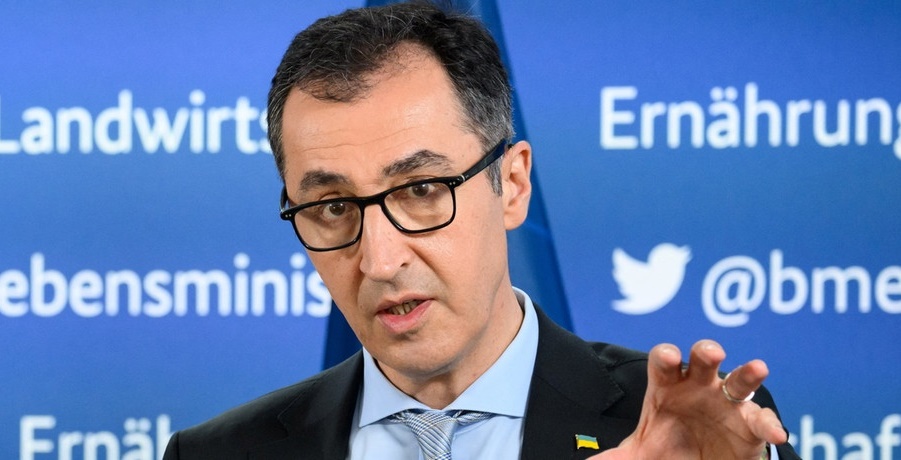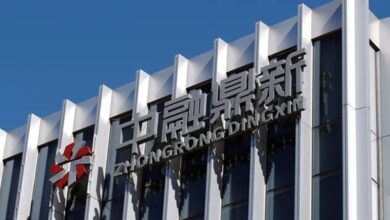Rising food prices: Pressure on Özdemir is increasing

The Ukraine war also has an impact on supermarket visits. Can German farmers make up for lost deliveries?
Minister Özdemir’s reform plans could falter.
Federal Minister of Agriculture Cem Özdemir took a seat on the government bench in the Bundestag on Friday morning. What has the Green politician not planned to do: more animal welfare, fewer pesticides, more organic farming. But the war in Ukraine and the associated supply bottlenecks call these goals into question. Özdemir’s reform plans could falter. A heated debate on food security ensued in Parliament.
Demand for increased food production
At the end of March, the EU Commission allowed farmers in the crisis this year to cultivate organic land with all types of grain, including the use of pesticides. The Union demands that Özdemir also allow this in Germany. Even within the traffic light coalition, the pressure on the minister is growing. In the short term, Europe and Germany must now unconditionally increase food production, according to the FDP.
However, experts consider this to be a sham discussion. On the one hand, because the cultivation of summer grain has already started. On the other hand, because the yields from these so-called ecological focus areas would be low. “We’re talking about potential world market price effects of zero point something percent,” says Harald Grethe, Professor of International Agricultural Trade and Development at Humboldt University in Berlin.
Rising food prices worldwide
Farmer Peter Guhl from Teldau in Mecklenburg-Western Pomerania does not believe in this short-term measure either. But he’s worried. For the farmers, the crisis means: exploding costs for diesel, fertilizer and animal feed. Farmer Guhl therefore already has to book additional costs of 200,000 euros. It’s a very difficult business at the moment. “Agriculture in particular is dependent on stability. Stability has been completely lost,” he says.
Nobody knows how long the crisis will last. Food prices are rising worldwide. Bottlenecks in African countries and the Middle East are threatening because of the wheat losses from Ukraine and Russia. So how to fight the food crisis? 638 international scientists are calling for a change in strategy in agricultural policy, a rethink on the demand side, above all less animal products and less meat.
Consider high meat consumption
Professor Grethe from Humboldt University also signed the declaration. “We need so much grain because we smuggle it through the animal’s stomach,” says Grethe. In this respect, it is worth questioning consumer behavior during the crisis. “What we’re doing there isn’t sustainable in the long term. We need to consume fewer animal products,” appeals the professor of agricultural trade.
Farmer Guhl also thinks it makes sense to eat less meat and consume more consciously. But he doesn’t want politics to control that. And he criticizes the fact that farmers should set aside even more land for environmental and climate protection in the coming year despite the crisis. It would be possible to produce more bread grain, says Guhl. On the one hand, if the forced set-aside of arable land would be dispensed with. On the other hand, if Özdemir would say goodbye to the goal of 30 percent organic farming. “Because 30 percent organic cultivation means that we harvest at most half the amount on this area,” says the farmer.
Search for “suitable financing mechanism”
The Federal Minister of Agriculture, on the other hand, never tires of emphasizing that the war crisis should not be played off against the climate crisis. More yield, less environmental protection, Özdemir does not want to support that, for example when using priority ecological areas. But even without the war in Ukraine, there was not only enthusiasm for the minister’s plans.
Funding for his project is far from secured. For example, his ministry has so far earmarked one billion euros for the years 2023 to 2026 for the conversion of animal husbandry. Far too little, he knows that himself. Özdemir speaks of start-up financing. Where the rest of the money will come from – experts estimate that up to four billion euros a year – is still unclear. The minister wants to present a “suitable financing mechanism” by the end of 2022, according to his house.
Persuasion in the coalition
One possibility would be to adjust the VAT for meat, sausage, eggs, milk and cheese from the current seven percent to the regular rate of 19 percent. Professor Grethe sees this as a reduction in subsidies for animal products. “Then you would also have a clear steering effect for the consumption of fewer animal products,” says the agricultural expert.
But in the traffic light coalition, the FDP is stepping on the brakes. The Liberals are pushing for “a system supported by market participants”, as formulated in the coalition agreement. More organic farming, more land set aside for the environment, more animal welfare – all of this will cost the minister: persuasion in his own coalition and more money.



